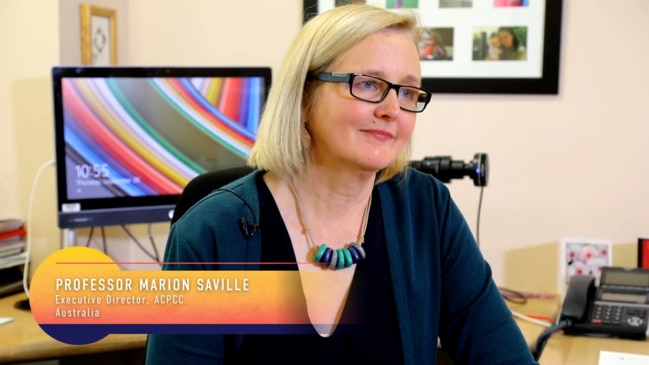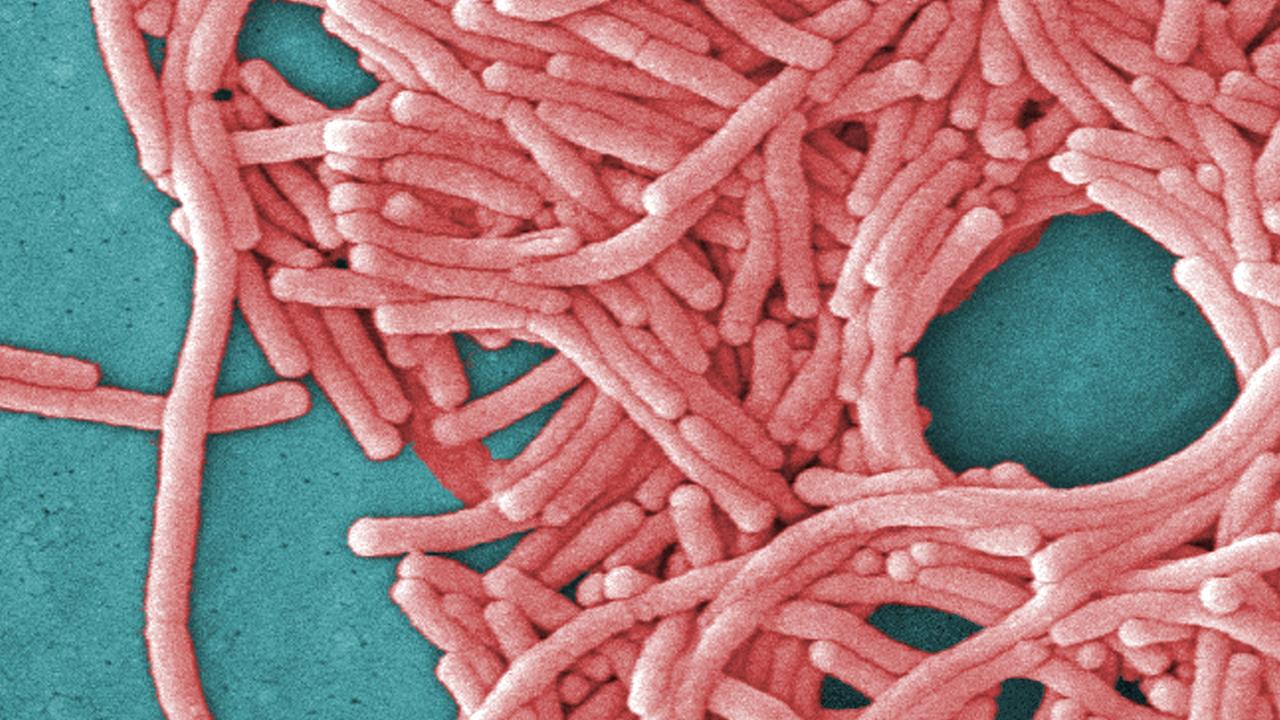‘Not right’: Common sex issue that kills 200 Australians every year
A mother-of-three has shared the warning signs she ignored before being diagnosed with cancer – including a sex issue that affects 1 in 3 Aussies.

A cervical cancer survivor who was “blindsided” by her diagnosis just days before her 30th birthday has revealed four symptoms she ignored – including a sex issue.
British-born Natasha has issued a stark warning for women everywhere, including Australians, after stating she brushed off several tell-tale symptoms too easily.
Annually, about 800 women are diagnosed with cervical cancer in Australia, with about 70 per cent of these cases occurring in women who have never screened or were not up-to-date with their screening, official figures show.
Cervical cancer develops slowly, and often flies under the radar in its early stages, quietly growing for months or even years before it’s diagnosed.
When symptoms do appear, they’re usually vague and easily dismissed as nothing serious.
That’s exactly what happened to Natasha who has bravely opened up in a viral video about the warning signs she missed — and how it ultimately cost her fertility.

Abnormal bleeding
Like many women, Natasha had a history of irregular menstrual cycles, so when she started spotting randomly, she didn’t think much of it.
“I didn’t see this as a big issue. It was,” she said in a TikTok that has racked up more than 1.2 million views.
Changes to your normal vaginal bleeding are one of the most common symptoms of cervical cancer. This could mean bleeding between periods, after sex or new bleeding after menopause. It could also mean your period lasting longer than seven days or having an unusually heavy flow.
Monica Avila, a gynaecological oncologist, said many patients come into her office having assumed a change in their diet or a new supplement was to blame for their symptoms.
“I hear it all the time,” she told Glamour. “If there’s any abnormal bleeding, it’s important to come in [for an exam].”
Pain during intercourse
Discomfort or pain during sex is common, affecting nearly 3 out of 4 women at some point in their lives.
“I can’t even explain to you how it felt. All I can say is that it wasn’t nice and it wasn’t pleasant,” Natasha said. “But again, because I kind of just had quite rubbish periods and period pains, I put it down to that all the time. I was wrong.”
This symptom can be a sign of advanced disease. As the cancerous tumour grows on the cervix, it can irritate the surrounding tissues and nerves in the pelvic area, causing discomfort or pain during intercourse.

That said, pain or bleeding during sex can also point to something nonserious, according to Lauren Streicher, clinical professor of obstetrics and gynaecology at Northwestern University’s medical school.
“It can mean inflammation of the cervix, a vaginal infection or cervical polyp — all of these are nonserious causes — which is why the general mantra is that if anything doesn’t seem right and is consistent, get it checked out,” Streicher told Prevention.
Extreme fatigue
Fighting off cancer is exhausting, and it could be why no amount of sleep seems to help keep you awake.
“I used to sleep a full night and all I’d want to do is nap all day,” said Natasha. “The level of tiredness that I felt, I’ve never felt anything like it in all of my life.”
Fatigue is a common sign of advanced cervical cancer because cancer cells drain the body’s energy. Still, the symptom is broad and could also signal something else, like anaemia.

Lower back pain
Back pain is something most people have dealt with, but when it’s persistent, it’s worth paying attention to. Natasha initially dismissed her lower back pain as something linked to her epidural from childbirth, which left her with on-and-off discomfort.
“When I had cancer before I knew it, it was more intense and it was all the time,” said Natasha. “But again I thought it was just my back pain getting worse.”
It’s not just back pain you should be concerned about. Persistent discomfort in the pelvis or appendix area can also be a warning sign of cervical cancer, as these regions are associated with reproductive organs, Dr. Jan Schaefer, chief medical officer at Medigo, told Cosmopolitan UK.
“However, this is only a symptom of cervical cancer that has become quite advanced, so is only something to really worry about when it coincides with the above symptoms,” he noted.

Don’t miss your cervical screening tests
Natasha is now officially in remission, but the mother of three tragically lost her ability to have more children. In her battle with cervical cancer, she underwent a gruelling operation that removed her womb, fallopian tubes, cervix, a third of her vagina, all of the muscles surrounding her bladder and her pelvic lymph nodes.
While devastating, Natasha says she’s grateful to be alive.
Australian rates drop dramatically
Cervical cancer is one of the most preventable cancers which is why the Australian Government introduced the National Cervical Screening Program in 1991.
More Coverage
Since the program began, the number of people developing cervical cancer has decreased significantly by detecting for the presence of human papillomavirus (HPV).
In Australia, those aged between 25 and 74 and who are sexually active with a cervix are eligible to get screened.
— With the New York Post





